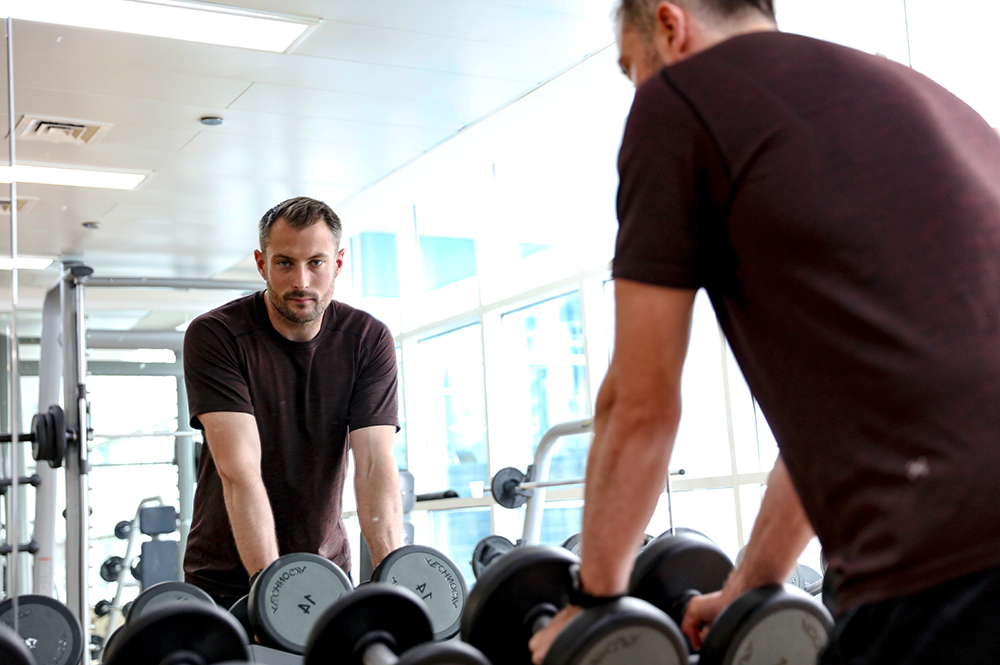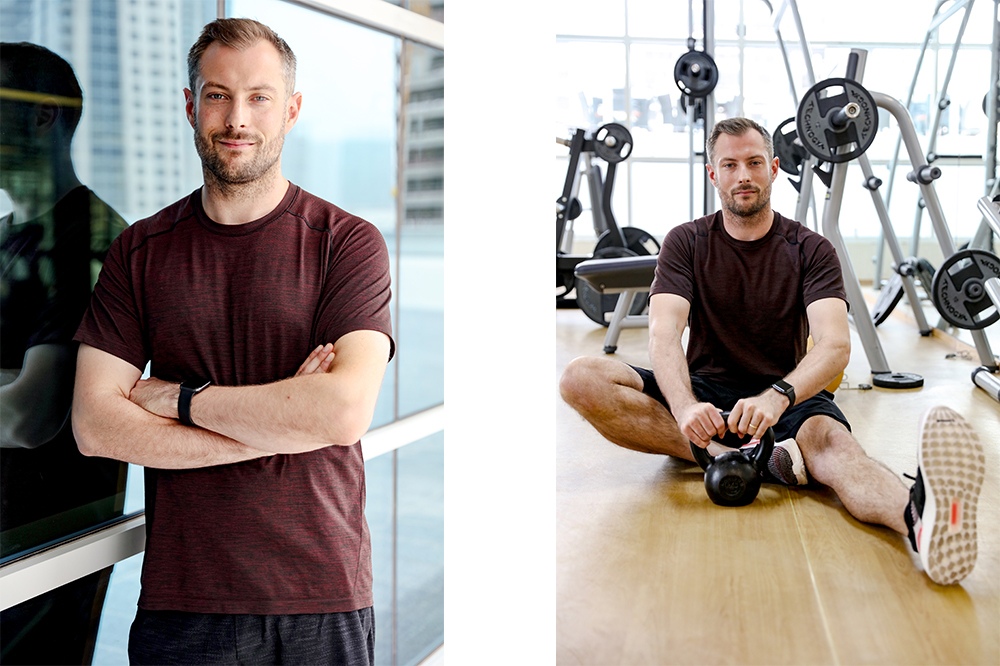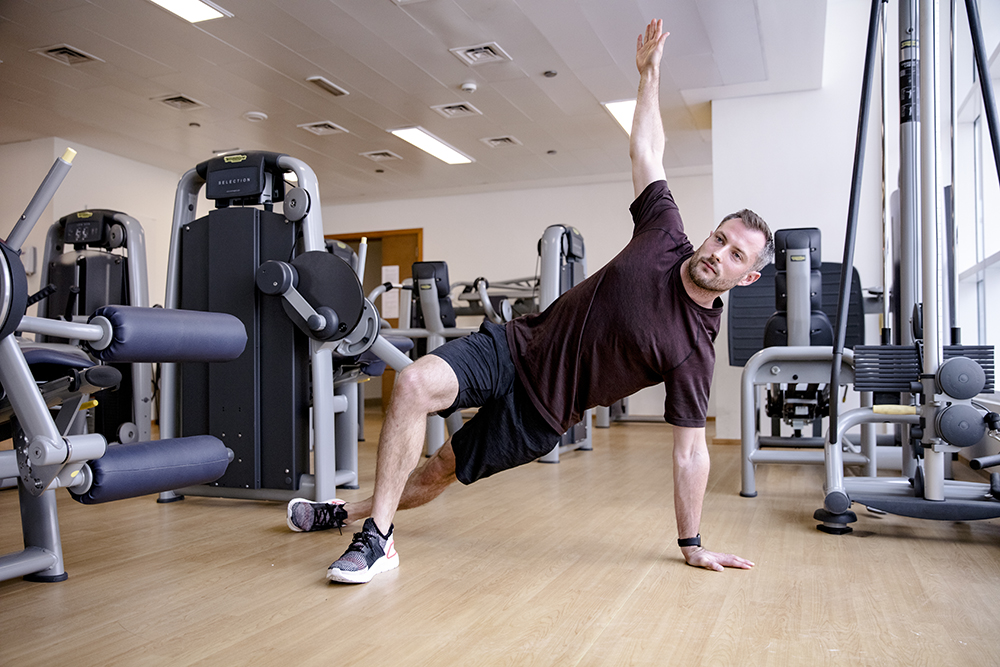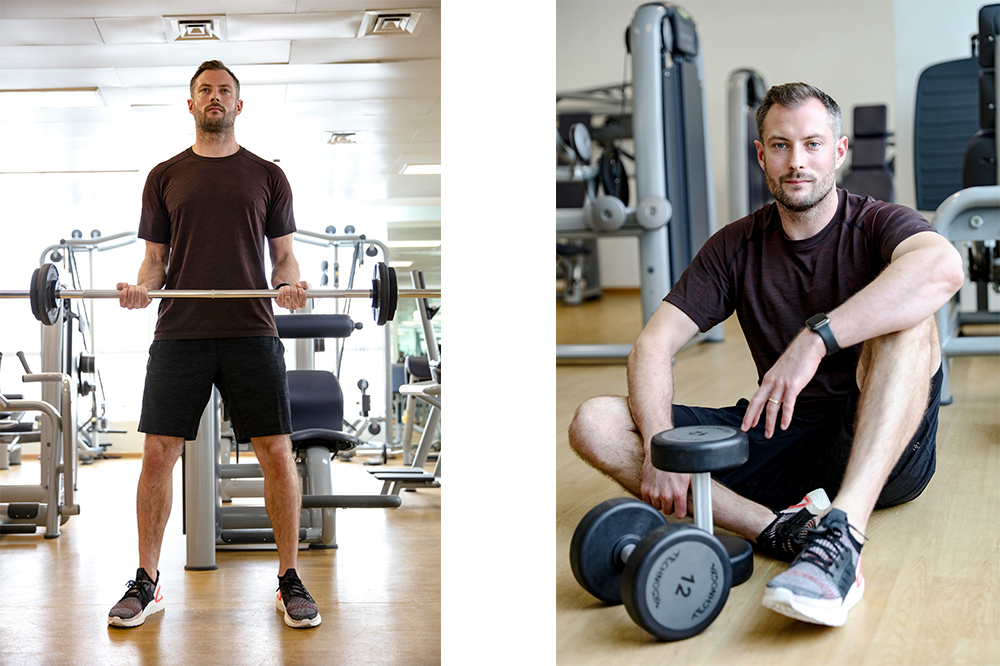
If it’s been on your to-do list to take up a new workout class or eat cleaner but don’t know where to start, you’ll find our latest chat with Fitness Coach and Nutritionist, Oliver Fairhurst, highly inspiring.
From working as a property developer to taking on a whole new career in fitness, Oliver tells us about his fitness journey – which is most certainly relatable when it comes to finding motivation, changing lifestyle habits and making time to focus on our inner and physical health.
Known as the @the_health_manager on Instagram, he also helps to bust some diet and fitness myths whilst explaining calorie counting, food and more.
How would you define what you do in one sentence?
I am a fitness and nutrition coach with a truly holistic view; I place equal emphasis on strength, conditioning, flexibility, power, speed, balance, mobility, recovery, nutrition and mindfulness.
Tell us a little about your fitness journey. You had a completely different career prior to being a personal trainer and nutritionist, what did you do before and what made you take this up as a career?
I have always been passionate about health and fitness, despite the fact that a few years ago I lost my way and wasn’t living a particularly healthy life. I grew up playing Rugby at a high level during my time at school and university, my father is a trained chef and the whole family loves to cook, so I have always had a keen interest in diet and nutrition. However, after leaving university and starting my career in real estate, I slowly developed some bad habits and started to become quite unhealthy.
I was working in London as a property developer and despite the job being fairly active and physical at times, I generally became quite sedentary, I gained poor eating habits, I was overworked and stressed, and wasn’t getting enough sleep. I was working out, which at the time meant just turning up at the gym and spending a little bit of time on a treadmill and walking around looking at all the fancy machines and feeling a little lost. It took a while for me to realise that I was too focused on getting fit the conventional way but neglecting all the other factors that are vital to getting healthy.
I think many people can relate to the pressures of modern day working life, finding time to eat “right”, finding time to work out, sleeping properly and managing stress levels. I didn’t have the balance right and things clearly weren’t working for me so I took stock of my situation and re-evaluated what was most important to me. Starting a family was the turning point, and I set out on a new journey to rediscover my health and fitness, losing 30kg in weight, and soon developed into a new career path.

What kind of training do you specialize in?
I work privately with individuals and offer group sessions for both fitness and nutrition clients. My training methods are varied, incorporating bodyweight training, kettlebells, animal movements, resistance bands, sand bags, steel maces and other unconventional equipment and methods.
What is your take on diets and what advice would you give to anyone wanting to go on a diet to lose weight or avoid weight gain?
I have a lot to say on this topic! To keep it short and to the point, most sensible diets do work, but they will all eventually fail when you stop following the diet and don’t have a plan to maintain it. Any of these short-term weight loss diets are in my opinion very harmful for you. You need to make sustainable lasting changes. If you want to drop some weight quickly, you can suffer and put yourself through hell for six weeks of barley eating and working out until you almost collapse. The minute you achieve your goal and stop, you will inevitably go back to where you started, often throwing your body out of whack, slowing you metabolism and creating havoc with your hormones. You need to make gradual and sensible changes that you are sure you can stick to. If it’s not sustainable it’s questionable.

When it comes to diets, is calorie counting necessary when aiming to achieve a desired result in way of physique?
If your goal is to lose weight, focusing on the energy balance equation (calories eaten vs calories burnt) has generally been considered to be the most important thing. I personally don’t agree and I prefer to look at what you are actually eating in terms of your macros (protein, fat, and carbohydrates). If you keep in the back of your mind how many calories you are consuming but focus on the types of foods you are eating, making sure you are getting a good variety of whole foods then you should be on track. Calorie counting can be stressful and not that helpful, understanding what you should be eating and keeping a little bit of flexibility is key. Eating healthy should be enjoyable and part of everyday life, not a stressful mathematical puzzle at each meal.
People often sign up to gym memberships, will go for a few days and never go again. How do you keep your clients motivated to want to continue to work out?
It comes down to the individual - you can’t make anyone do something they don’t want to do. It’s not easy, but I try to keep my clients engaged and motivated by constantly mixing things up and challenging them. If things are too hard, people tend to give up (eventually), if things are too easy and you’re not pushed, you will get bored and feel like you are not achieving your goals. The balance is what I strive for. Setting goals and actually seeing progress really works for my clients.
What keeps you motivated?
My family is what keeps me motivated. I am lucky enough to have a regained my fitness and I wake up every day with my health as my priority. If I don’t exercise I don’t have the same energy throughout the day. If I don’t eat well I can lack mental clarity and feel sluggish. Meditation and breath work keeps me grounded. Mobility drills and stretching keeps me limber and pain free. All of this helps me live the life I want to, and I’m not prepared to live a sub-optimal life. Each day brings new challenges and I want to be there raring to go to and cease the day.

What would you say are the biggest myths when it comes to diets and working out?
That cardio is the ONLY way to get slim. I hate this myth. I personally enjoy long distance running, cycling, or jumping on the rower for an hour, but I see why people don’t enjoy this or simply don’t have the time. High Intensity Interval Training (HIIT) has been shown in numerous studies to be more effective for fat loss than sessions of prolonged solid state cardio. Lifting weights has also been shown to have great fat loss benefits, helping you to gain lean muscle and burn any unwanted body fat. Again, mixing things up and not letting your body adapt is so important here.
Lastly, do you have any daily tips/strategies for our readers they could implement to help them gain a fit and healthy body composition?
Fasted cardio. I am a big fan of time restricted eating (TRE). This is where you fast for anything from 12-16 hours (I usually do this overnight), and then break your fast with a low glycemic meal full of vegetables, protein and healthy fats. After waking up I like to take a long walk, do yoga, swim, or go for a light run in a fasted state. This is a great way to turn your body into a fat burning machine and studies have been conducted to show the benefits of TRE on longevity and helping the body recover. It can help you regulate blood sugar levels and give your body, especially you GI tract time to recover.
















